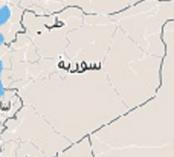
It hurts me that my country needs doctors and I left.
I was completing my medical residency at a public hospital when anti-government protests first broke out in Syria. By the end of 2011, government security forces were bringing detained members of the opposition to my hospital for treatment. Members of the security forces would insult and physically attack the medical staff, while also causing chaos by shooting their weapons into the air. In one instance, my colleagues and I were unable to save a severely injured member of the security forces. The soldiers that brought him in threatened that if I was unable to save the man, they would take my life. One of them pointed a machinegun at us and told us to shock the dead man with electricity.
Although I knew that the patient was already dead, I had no choice but to play along and pretend to treat him by using the defibrillator, as requested, and giving him an injection – I knew that if I did not comply, our lives would be in danger. Another security official was more understanding, and eventually convinced the others to let go of the situation. Someone from the hospital’s morgue later told me that the deceased guard had two grenades in his pockets. If we had used a higher level of electricity to shock him, it is likely that the grenades would have detonated, injuring, if not killing, us all.
I saw many detainees in my hospital who appeared to have suffered abuse. One female detainee was brought in to see an obstetrician to get a pregnancy test, and the doctor identified signs of torture on her body; she may have also been raped. I treated another patient with multiple fractures and whose leg and face were swollen from beatings; one of his eyes was bruised to the point that he was unable to open it. Another detainee came in with a high fever, had been repeatedly beaten in the head until he lost consciousness, and was having seizures in the emergency room. I insisted to the security forces that they should leave him at the hospital for treatment, but they refused and took him back to detention – undoubtedly to torture him further – after some superficial treatment.
I distinctly remember an occasion when security forces arrived at the hospital and aggressively forced all the doctors to gather and treat an injured officer. I saw them push one of my colleagues down the stairs and beat him. I only managed to escape by changing out of my scrubs and pretending to be a patient.
*The author’s name has been changed for security purposes. The full article continues at http://physiciansforhumanrights.org/blog/under-the-gun-practicing-medicine-in-syria.html on Physicians for Human Rights’ website.

